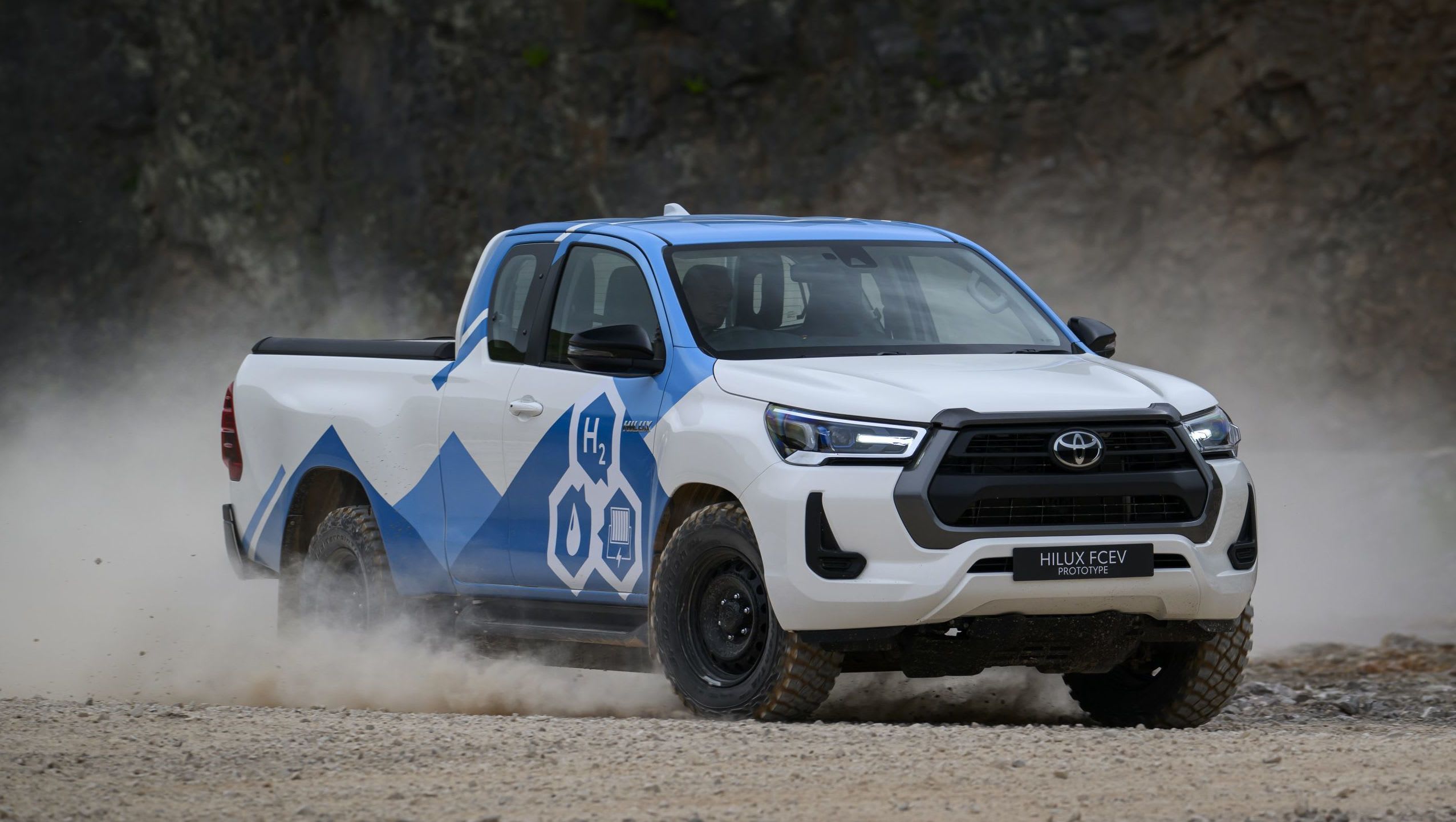Toyota is betting big on hydrogen.
The Japanese giant has been forging ahead with the zero-CO2 tech despite a big global focus on battery-powered electric cars.
It appears the HiLux is the next vehicle the brand is targeting to use hydrogen power with a fleet of 10 prototypes undergoing evaluation and testing in the UK.
Five vehicles are being put through rigorous field testing to assess safety, performance, functionality and durability, generating test drive data in real-world situations. Another five will be used for promotional purposes at the upcoming Olympic Games.
The vehicles are fitted with the company’s hydrogen fuel-cell technology, which converts hydrogen to electricity that charges a lithium-ion battery, which feeds an electric motor. The only tailpipe emission is water.
The hydrogen fuel cell HiLux has a driving range of up to 600km and uses a single 134kW/300Nm electric motor to drive the rear wheels.
A Toyota Australia spokesperson said: “The HiLux FCEV is a Toyota UK-led trial. It demonstrates how a fuel cell might be incorporated in a pick-up. Thanks to hydrogen being light, a vehicle such as an FCEV HiLux can offer higher payload and towing capabilities than other zero tailpipe emission alternatives.”
“If a prototype were to become available for evaluation in Australia, we would welcome the opportunity, especially given the extensive involvement with HiLux by our vehicle evaluation department.”
Toyota Australia Vice President of Sales, Marketing and Franchise Operations Sean Hanley said hydrogen still had a fair way to go before mass market adoption in Australia.
2024 Toyota HiLux hydrogen fuel-cell prototype.
“Infrastructure is still our biggest challenge, but we do still see it as a part of the future,” said Hanley.
“What’s challenging is that people want volume before they invest in infrastructure, so it may be incumbent on the likes of Hyundai and Toyota to lead that,” he said.
Currently there are only a handful of hydrogen refuelling stations covering Brisbane, Canberra, Melbourne and Sydney.
“I do believe it’s still in that 2030-2035 horizon. I think it’s a while to go, but certainly a technology that we will continue to invest in,” said Hanley.
“It’s not something that I see in the foreseeable three to five year horizon. We will sell those cars in the next two years, but it will be sold in areas where we have infrastructure to support.”
Currently Toyota has a small fleet of its Mirai hydrogen fuel cell vehicles in Australia that it leases to companies, but it is not for sale to the general public.
The company has a hydrogen HiAce van trial operating in Australia. Unlike the HiLux prototype, which uses a fuel cell to make electricity, the HiAce uses a conventional engine that runs on hydrogen.

